- Home
- Chris Wraight
Wulfen
Wulfen Read online
Wulfen
Chris Wraight
His smell makes my nostrils pucker. Somehow, even amid all the grime and misery of this place, I can still detect his stink, like a clot of sweaty blood that won’t dislodge.
‘Name,’ I say again, wondering if he is capable of answering me.
He stares back, looking through me, slumped against the walls of Cell 7897, his limbs slack and his palms upturned.
I stare back at him, forcing myself to go through the prescribed procedure. Coteaz will want details of all of this. I do not wish to disappoint Coteaz; no sane woman would.
He is painfully thin. His cheeks are cadaverously sunken, his uniform hangs loosely about him. I can see a griddle pattern of ribs under his torn flak jacket. A hastily stitched regiment badge hangs from his chest. It bears the words ‘Creed’s Blade’.
All the other subjects have the same badges on their uniforms. I find the name ridiculous. Everything about these people is ridiculous. They were brave but stupid.
Perhaps there is little difference.
‘Tell me your name.’
The cell is just like all the rest: metal walls running with corrosion, lit up by a single dirty lumen bar. It is dank, overheated, thick with the accumulated verdigris of human misery.
I wonder for how many centuries it has been in use. I wonder how many men and women have found themselves here, locked deep inside Coteaz’s fortress-moon without hope of release or recovery. None of them, I notice, took the time to scrawl their names on the wall or leave marks indicating their presence. Perhaps they would have done so if they had been incarcerated in some other kind of institution, one where a hope, however small, remained that they would see sunlight again.
But this is Coteaz’s place. They do not need to be told that to know that their lives are over. Only a very few are brought into the sunless chambers of the Inquisitor Lord; those who are damned, or have witnessed damnation, or who know too much, or who do not know enough.
‘You can still serve. Even now. Give me your name. That will be a start.’
I know his name. His name is Mattias Morbach. I know that he was once a sergeant in the 345th Cadian Armoured, and that he had a wife and family on Ulthor before it was destroyed. I know that he joined up with the Creed’s Blade regiment soon after that. Perhaps he was driven by grief; he does not seem to me to have the wide-eyed idealism of some of the others I have seen.
I know all the things I am asking him to tell me, but information, at this stage, is not important. I wish him to start with the simple things, and then perhaps we will be able to move on to those things that are less simple. So many of those poor souls brought here can no longer talk at all. I wonder if he is one of them.
I crouch before him. My soft leather boots crease. I feel my fur-lined cloak settle over my shoulders and the holster of my bolt pistol pinch at my armoured waist. I am warm, and I am beginning to sweat. Briefly I consider removing my cloak, but it would diminish my presence and I am reluctant to lose the trappings of authority.
I am Alisa Damietta, inquisitor of the holy Ordo Malleus. I have standards to maintain.
‘I know you have suffered. Tell me your name. You can still serve. We are not wolves, we are here to help you.’
Then he looks at me. I wonder what I said to unlock his attention. His eyes swim into focus, which is obviously painful for him. For the first time he seems to realise where he is.
‘Morbach,’ he mumbles. ‘Sergeant.’
‘Good,’ I say. ‘That is a start. Let us build on it.’
He keeps talking. I am pleasantly surprised. None of the others got further than giving me their name. I listen. He tells me how he joined up with Creed’s Blade, what their hopes were, how they planned for the attack. I am moderately interested in this and ensure the words are recorded for further analysis. Perhaps someone in authority on what remains of Cadia can be implicated for the fiasco. It always helps to have someone to blame.
‘Good,’ I say. My voice does not do soft cadences easily; I have to work to keep it encouraging. ‘Now tell me what happened when you got there.’
He doesn’t reply at once. The stink of fear returns; an animal response.
‘Do you mean...?’ he begins.
‘Yes,’ I say calmly. ‘Tell me what happened on Voidsoul.’
The world’s name makes him shiver. Despite the uncomfortable ambient heat he seems incapable of getting warm.
But he starts to talk, and he keeps talking. Perhaps he needs to. I record all these words and listen carefully as they are stored.
‘We could see it from space before we landed,’ he says. ‘Red, like a scab on the void. Saw things moving across it. Thought they were clouds. Storm clouds. Remember thinking the descent will be tough. That was my main concern: might not make it down, miss out on the fighting.’
He gives a strange half-smile, a wry one, and his lips twist awkwardly. I see that he is breathing more heavily. His pupils start to dilate and a thin gloss of sweat forms on his forehead.
‘But we did. Somehow, we got down. Carriers discharged early. Landers shot down, too fast, far too fast. Everyone on edge. Knew something was wrong – air in the crew chamber suffocating. Everything vibrating, coming apart. Heard screaming. From outside. Checked my weapon, and my hands were shaking. Served for twenty years. Seen plenty of bad things. Hands never shook before.’
I watch him carefully. I note the red rims around his eyes and the twitching of his dry fingers. I see saliva at the corners of his mouth. I see his pupils dart back and forth.
He is there now. He is back on Voidsoul with his foolish brothers.
‘Made planetfall. Doors opened. Holy Throne, I don’t... I don’t have the words.’
He thinks, he remembers. His brow creases into withered folds.
‘The sky. Like… boiling blood. Everything stank. Hot metal and smoke. Couldn’t hear anything, not on the comm, not from anything. Screaming just made you want to cover your ears and cower. The air was screaming. Understand? The air was screaming.’
I begin to make preparations. I have seen men lose themselves in testimony such as this. I don’t want to kill him unless I have to, so must be careful. For all that, I feel a vestige of pity for him. No human should witness what he has witnessed.
‘Some couldn’t get up – just wept in their harnesses, rocking like children. I got up, though. Started to break out. We ran down the ramps, trying battle-cries, trying to see where the standards were raised. Saw landers explode as they came down, hundreds of them, flaming. Saw the sky blister, like… boils. Like boils bursting.’
He shudders. He sweats.
‘They came,’ he says, and gaunt horror fills his face. ‘Swarms, thousands, over the red earth, flickering, shrieking. Saw them rip through whole battalions, carving them up. Like slabs of meat, gorging on blood, gulping it, gargling into it. Striding, trailing smog and guts, grinning, tearing. Red horns, teeth like black needles, and their eyes... The eyes...’
I sense the time has passed; he is falling into apoplexy. I should stop this, but I wish to learn more.
Let me be candid: I wish I could have seen what he has seen, if only for a second. The neverborn are my life’s study, but I have never been to one of their worlds. How could I? They would devour one of my kind in the space of a heartbeat. But part of me, a forbidden part that condemns me, wishes to glimpse what terrible places spawn the creatures of our nightmares. I will no doubt be punished for that yearning one day, but still it remains.
So I let him speak.
‘We tried to ascend a ridge, one running up from where our lander had come down. Somehow a command group had reached th
e summit. They’d got a banner up. Remember running towards it, tripping over rocks as sharp as knives, hearing my comrades being cut apart. Took seconds, just a few seconds, and so many had already died. Knew I was next. Emperor damn me, but I wanted to die! Shaking so hard I couldn’t carry my weapon. Wanted to vomit but my body wouldn’t let me. They followed us. So fast!’
He gets more agitated. I withdraw, ready to prepare a sedative. This is interesting, and I resolve to petition Coteaz for more time with this one.
I don’t know how I miss his movement. He looks so near to death – he should be incapable of anything but an exhausted torpor – but he suddenly bursts up from the floor. His eyes are raging, splayed wide in terror and desperation. He does not see me; he sees the creatures of Voidsoul. For a moment, I am exposed.
He goes for my face, fingernails raking. I jerk back, feeling his skin-and-bone frame clatter against my gilt-edged breastplate. He screams at me, and his dehydrated spittle sticks against my cheeks.
I twist around, striking him on the shoulder with my closed fist. He crumples instantly, and something snaps under his skin. I follow up quickly, smoothly, drawing my pistol and cracking the grip across his temple.
He falls, out cold, scrawny limbs akimbo on the metal. Spots of blood mark his soiled uniform and drip onto the pressed-mesh floor. I am tempted to hit him again, just to discharge the shame I am already feeling, but I do not.
It is then that I see something on his neck, something I had missed before.
I stoop over him again, noting his trembling breaths and twitching fingers. Something is embedded in his flesh just below his shoulder-blade. The rough fabric of his jacket has come open, exposing grey, bone-stretched skin underneath. An angry weal disfigures it, raised and tight to the touch.
I probe gently, pressing gloved fingers on either side of the wound. The skin breaks and a foul swell of pus emerges. It is followed by a thin object, smooth like a pine-needle but triangular in shape, slightly curved and tapered, as long as my finger from knuckle to tip.
I withdraw it carefully. It has the look of a talon or a claw. Knowing where he has been, my first instinct is to destroy it, but something holds me back. I do not sense any corruption in it, and my sense for such things is usually good.
So I take it. I stow it in a capsule at my belt and pull away from the twisted body of Mattias Morbach. I regret that I allowed matters to get out of hand. He is scheduled for destruction; if I had more time, I might discover something of value.
I pull myself upright and dust myself down. A residual trace of mortal stink lingers on my fine apparel, a hazard of such dreary work. I turn, depressing the rune on my glove’s lining that will open the doors and allow me to leave the cell.
I am calm. The momentary exertion did not seriously trouble me. I have certainly experienced more taxing episodes when confined alone with a prisoner.
As I walk into the corridor outside, however, my belt feels heavy at my waist. This troubles me. I do not know why.
I walk quickly, heading up from the cell levels to the laboratoria. I go past dozens of locked doors, each one cut from unburnished metal and marked with a single number. The numbers are not in order: I pass 568, then 3458, then 998. Some numbers are missing entirely. Coteaz has his reasons for such a scheme. I do not know what it is, but then he is privy to esoteric knowledge that I am not.
The air remains humid. I hear the groans of the incarcerated. From lower down I hear the echoes of screams. Perhaps they are the result of prisoners’ nightmares, or perhaps the excruciation chambers are in use. Such sounds have been a part of my life since I arrived here five years ago; I barely notice them now.
I climb stone-cut stairs. Parchment scrolls hang from the walls, flaky with age. Each one has a benediction inscribed in High Gothic. The ink is brown. It is old blood.
At times I wonder if such theatricality is necessary, but Coteaz is one for the grand gesture.
‘I do nothing that is not needful,’ he once told me, his stern eyes shadowed by feathered ice-white eyebrows. ‘Nothing.’
And though I remain unsure about that, I trust him. I trust his knowledge, his commitment, his iron will. He inspires me as much as he scares me, which is, I suspect, exactly how he likes it.
I reach the level where the chirurgeons practise their trade. I pass through brightly lit chambers, each one lined with white tiles and harbouring arcane machinery. I see rows of coloured vials and racks of scalpels. I see half-dissected cadavers and strapped-down live subjects, their eyes bulging and fearful.
I keep walking until I find Chirurgeon-General Oskar Kieem. His apron is streaked with blood and his hands are pink from recently removed latex. He sits at his pedestal desk tapping on a data-slate. He does not look pleased to see me.
‘Damietta,’ he acknowledges, dipping his bald head.
I take the talon and show it to him. His eyebrow does not raise; he has no eyebrows. He has no hair of any kind.
‘What is this?’ he asks.
‘Embedded in a subject,’ I say. My voice is severe. Kieem is a proud man, and needs to be reminded who is in charge. ‘Why was it not detected during incoming quarantine?’
Kieem looks at it carefully. He tries to hide it, but I can see he is embarrassed. The wrinkled skin at his collar flushes a pale pink.
‘I do not know,’ he says. ‘We have had so many bodies to process. Perhaps–’
I do not let him finish.
‘Sloppy,’ I say. ‘I should report it.’
His flush grows.
‘Of course,’ he says.
‘Give me your expert judgement,’ I say, offering him a way out. ‘Is it tainted? Something I should worry about?’
He turns it over in the palm of his hand. Then he reaches down to a lead-lined drawer and takes out what looks like an array of spyglasses held together by a cage of metal. The brass rim has esoteric devices hammered into it, and I recognise wards against corruption engraved in the lenses. He adjusts dials and slides switches before looking at the talon through it. A soft green light bleeds out across his flesh. The machine hums. It smells of ammonia.
He studies it for some time before turning the device off. He hands the talon back to me.
‘I see nothing untoward,’ he says.
‘Then from an animal.’
‘Perhaps. If so, I do not know what kind. Beasts are not my speciality.’
I put the talon back in its capsule. I am relieved to find that it possesses no corrupt essence, but the mystery of its presence still remains.
‘I will make enquiries,’ I say, turning away from him.
‘And will you…’ he begins. ‘Will you report the failure?’
I do not answer. I keep walking, going back the way I came, leaving Kieem wondering. It will be useful to me to have him guessing for a while.
But he does not, in truth, matter much. My next appointment will be of more consequence.
‘No,’ says Coteaz.
I do not dare ask again, but I hesitate, just for moment, before acquiescing. That is rebellion enough.
In that minuscule pause, I look at his features as if for the first time. I see the scarred bald pate, the tanned skin as tough as flak-mesh, the immense shoulders with their ruffled, furred pelt standing proud. His armour is polished gold and his livery is blood-red. Even without it he would be broad-set and intimidating; within his timeworn plate he looks scarcely less imposing than an Angel of the Adeptus Astartes.
When he looks at me, it is as if he scrutinises me naked. I have many gifts and do not cow easily, but I cannot shake that belittling sensation. Of all his many powers, that is perhaps the most lethal and insidious: the capacity to make the mighty feel like children.
‘By your will, lord,’ I say, bowing my head.
Inquisitor Lord Torquemada Coteaz, High Protector of the Formosa Sector and Sc
ourge of the Daemonic and Unclean, continues to look at me harshly.
‘You wish to object?’ he asks.
I do not. I wish for nothing but to escape his dominating presence. But I persist for a little while longer. I have been told I am a stubborn soul.
‘None of the others talked like he has,’ I say. ‘If I had a little more time, I might discover more.’
Coteaz does not look impressed. He places his heavy gauntlets together with a dull clink. Those hands have ended the lives of thousands. He moves them like a blacksmith might move his hands – heavily, deliberately, in the knowledge that they are the tools of his sacred craft.
‘Discover more, Inquisitor Damietta?’ he asks. ‘This is what we know of these fools. They formed themselves into an army called, fancifully, Creed’s Blade. They launched a suicide mission to the daemon world E678, which they call, fancifully, Voidsoul. Nearly all of them died. The few that survived are now mad or mute. Those who retain the use of their tongues rant only of their nightmares.’
As he speaks, he continues to stare at me with his dark eyes. I wonder exactly what horrors those eyes have seen.
‘We know that a daemon world is a world of nightmares,’ he says. ‘We do not need to be told it again in every detail.’
I swallow. There is little point in trying to hide my nerves.
‘Then what is the purpose of interrogating them?’ I ask.
Coteaz’s expression does not change. He does not smile, he does not frown. I have rarely seen his stony visage express anything other than imperious disdain.
‘One of them, one day, might tell us something we do not know,’ he says. ‘This one has not. He is broken. His usefulness is over.’
He towers over me. He keeps his killer’s hands clasped.
‘He will be annihilated, just as scheduled,’ he orders. ‘Now go. Sleep. Your next shift starts at dawn.’
This time I do not hesitate. He has indulged me more than I might have expected; I must not press my luck.
‘Yes, lord,’ I say, bowing in defeat.
I have never disobeyed him before, but this night I do so twice.

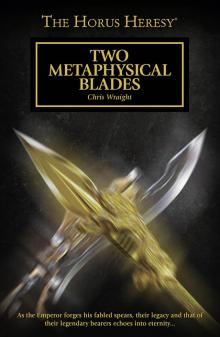 Two Metaphysical Blades
Two Metaphysical Blades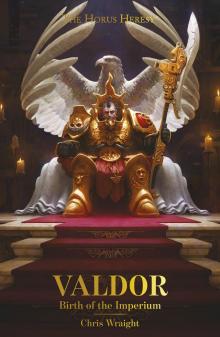 Valdor: Birth of the Imperium
Valdor: Birth of the Imperium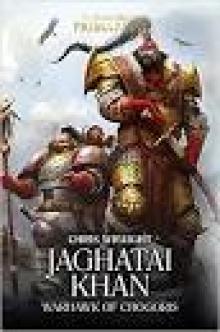 JAGHATAI KHAN WARHAWK OF CHOGORIS
JAGHATAI KHAN WARHAWK OF CHOGORIS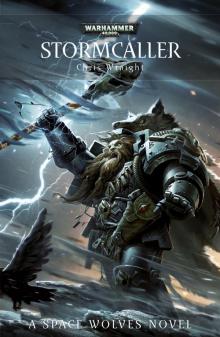 Stormcaller
Stormcaller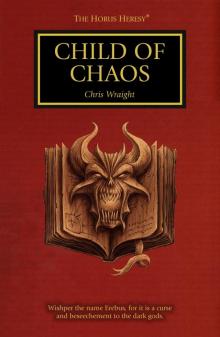 Child of Chaos
Child of Chaos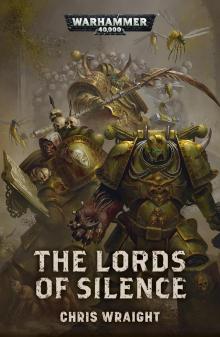 The Lords of Silence
The Lords of Silence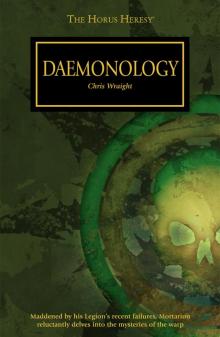 Daemonology
Daemonology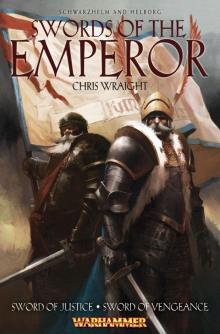 Swords of the Emperor
Swords of the Emperor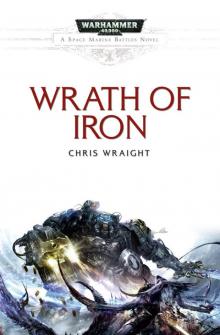 Wrath of Iron
Wrath of Iron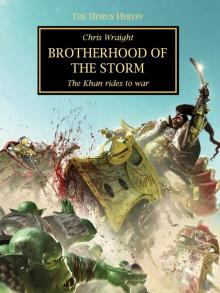 Brothers of the Storm
Brothers of the Storm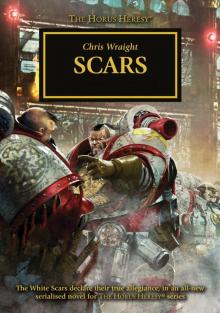 Horus Heresy: Scars
Horus Heresy: Scars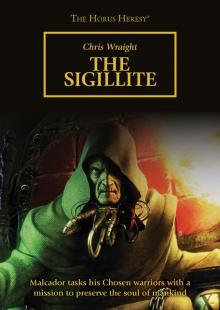 The Sigillite
The Sigillite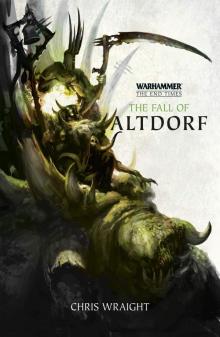 The End Times | The Fall of Altdorf
The End Times | The Fall of Altdorf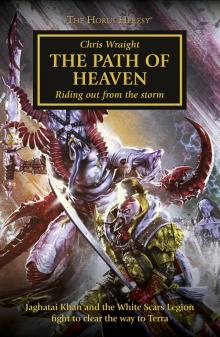 The Path of Heaven
The Path of Heaven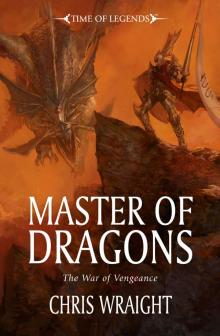 Master of Dragons
Master of Dragons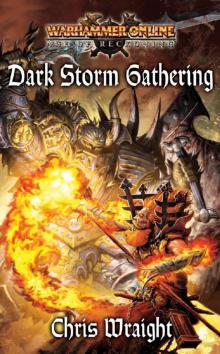 WH-Warhammer Online-Age of Reckoning 02(R)-Dark Storm Gathering
WH-Warhammer Online-Age of Reckoning 02(R)-Dark Storm Gathering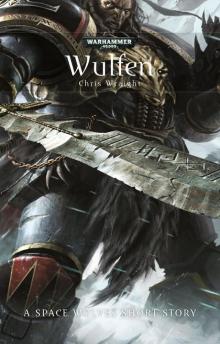 Wulfen
Wulfen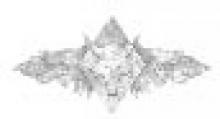 Battle Of The Fang
Battle Of The Fang Onyx
Onyx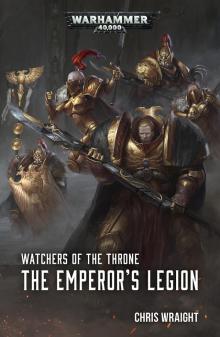 Watchers of the Throne: The Emperor’s Legion
Watchers of the Throne: The Emperor’s Legion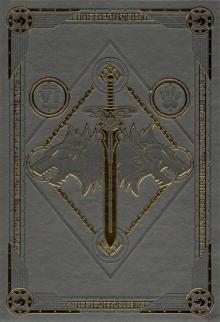 Leman Russ: The Great Wolf
Leman Russ: The Great Wolf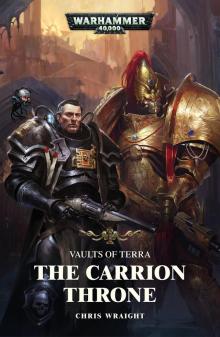 Vaults of Terra: The Carrion Throne
Vaults of Terra: The Carrion Throne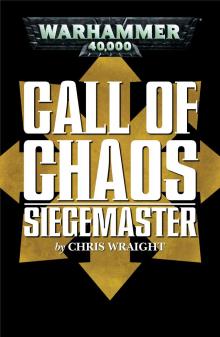 Siegemaster
Siegemaster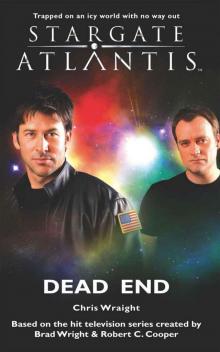 STARGATE ATLANTIS: Dead End
STARGATE ATLANTIS: Dead End Scars
Scars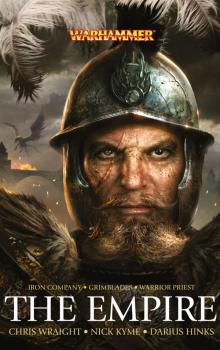 The Empire Omnibus
The Empire Omnibus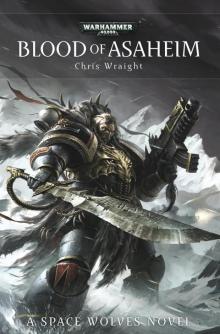 Blood of Asaheim
Blood of Asaheim